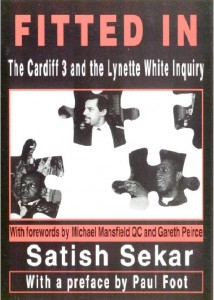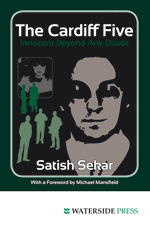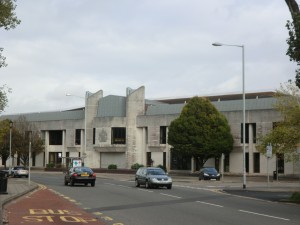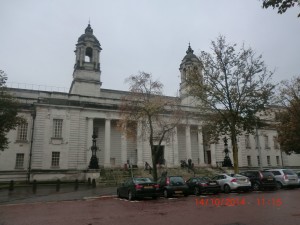Inadequate Mechanisms
For reasons that we have made clear the Independent Police Complaints Commission’s (IPCC) investigation and that of the HMCPSI are hopelessly flawed. The terms of reference of both investigations are limited to the collapse of the trial that ended controversially in December 2011. This is grossly inadequate as it completely ignores the causes that resulted in these investigations – the original miscarriage of justice that befell the Cardiff Five.
The CPS has refused to answer our legitimate inquiries into why it prosecuted the Cardiff Five in spite of its own Code for Crown Prosecutors establishing that this was never a credible case for prosecution, for over 15 years. It tells us to wait an unspecified period for it to conclude an investigation that will not address these issues. It has never reviewed its decision to prosecute even though it was obliged to do so. Its conduct throughout this case is indefensible. But its flawed practices are open to scrutiny.
Its role in this case and concerns over it resulted in our project Unfit for Purpose – The Safeguards Fail. It has refused to lodge a complaint about its practices and failures, insisting on the HMCPSI investigation being completed first. The Attorney General supports this decision, refusing to record a complaint about the inordinate delays. Its process will result in further delays aimed at preventing the serious failure of the CPS to follow its own guidelines being addressed until it is too late, which is their intention.
Similarly, the Bar Council and Law Society refuse to review the failures of its members in this case. The judiciary have not looked at its failures either. The scientific failures by the Forensic Science Service were reviewed by that organisation before it was closed by the government, but that report has never been made available to the public, largely because of the failed prosecution.
South Wales Police have reviewed the force’s failures in the Lynette White Inquiry twice. The Hacking Report was concluded in September 2000. It produced 107 recommendations. Police claim some have been implemented, but over a decade later not one recommendation has been published. The other investigation resulted in the failed trial. There has never been an independent review of the Lynette White Inquiry even though it is plain that it is sorely needed, but the form it should take is open to debate.
A Novel Solution
The concept of a public inquiry has been discredited by the Saville Inquiry into the events on Bloody Sunday. That inquiry dragged on for years and cost a fortune, but the only obligation on government in such cases is to hold a public inquiry even if that process has been rendered utterly inappropriate and inadequate. The government has the discretion to order one if it chooses to, but can only be compelled if there has been a breach of Article 2 or 3 of the European Convention of Human Rights.
The Fitted-In Project recognises that the Lynette White Inquiry remains a difference-making case – one that is capable of resulting in the root and branch change necessary to correct and preferably prevent justice miscarrying. But to achieve that potential there must be an independent inquiry that is open to the public. It must be chaired by a judge or retired judge and have powers to compel attendance from witnesses. The aim of such an inquiry is to inform and enlighten rather than to avenge. It has made history several times and is surely worthy of such a review, especially after the fortune that has been wasted without accountability or redress. Where else could public resources be wasted in such an unaccountable fashion without any consequences at all?
We therefore propose innovative solutions to the problems raised by this case and others through our projects and activities (see Projects and Activities). This is a difference-making case that must be allowed to achieve its potential in order to benefit society as only it can. That requires an independent and impartial judicial inquiry into what wrong and how it can be prevented from happening again or alternatively a Truth and Justice Commission (TJC) with powers to compel attendance and where appropriate grant amnesty. The TJC is our preference.
Over 25 years after the Sadistic murder of Lynette White, it must now be clear that even with a change of approach in the higher ranks of South Wales Police, the force cannot put their house in order and nor should the rest of the criminal justice system be trusted to do so. Only the solutions we advocate can achieve that and foster the root and branch change required to deliver justice to all concerned.





